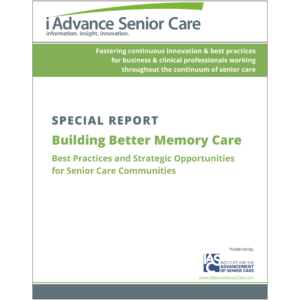Study: Exercise time isn’t linked to cognition fitness
Brisk walking for 20 or 25 minutes a few times a week may help adults retain cognition – and more intense workouts don’t mean noticeably more cognitive benefits, says Jeffrey Burns, MD, a director of the University of Kansas Alzheimer’s Disease Center and the senior author of a study published in PLOS ONE.
Researchers monitored 101 sedentary older adults who were at least 65 years old, generally healthy and had no symptoms of dementia or other cognitive impairments. Participants were tested for their aerobic capacity and ability to remember and think. They were then assigned to one of four groups:
The control group with no additional exercise.
Group 1 exercised for 75 minutes a week.
Group 2 exercised for 150 minutes a week, the current recommendation of moderate exercise.
Group 3 exercised for 225 minutes a week.
Participants went to their local gym for supervised brisk walks on a treadmill three to five times a week. They were re-evaluated after six months.
Researchers found most participants who exercise showed improvements in thinking skills, particularly the ability to control attention and create visual maps of spaces in their heads. The improvement was about the same whether volunteers exercised for 75 minutes a week or 225 minutes.
Read the full study here.

Nicole was Senior Editor at I Advance Senior Care and Long Term Living Magazine 2015-2017. She has a Journalism degree from Kent State University and is finalizing a master’s degree in Information Architecture and Management. She has extensive studies in the digital user experience and in branding online media. She has worked as an editor and writer for various B2B publications, including Business Finance.
Related Articles
Topics: Alzheimer's/Dementia











